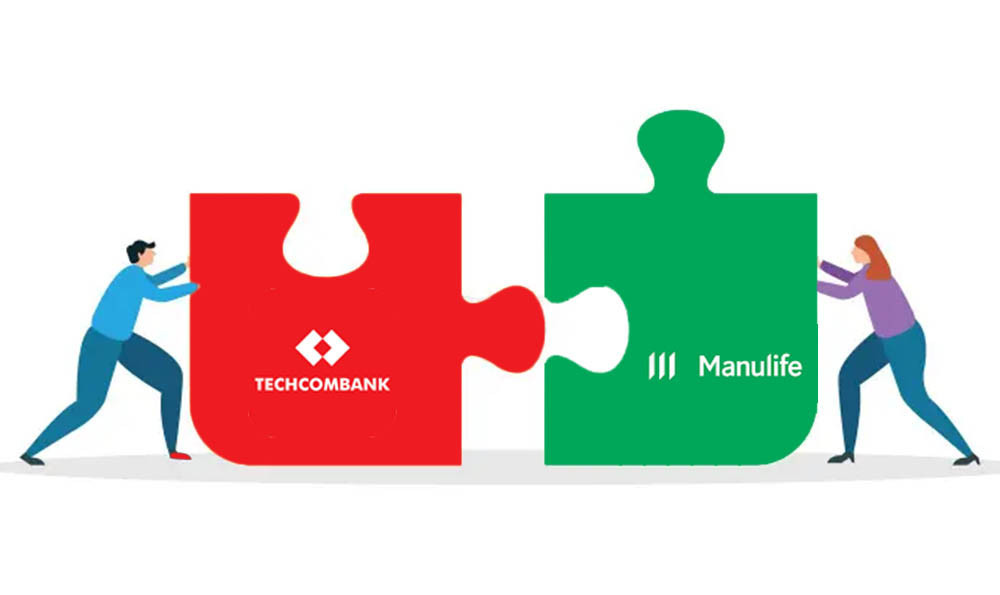
Techcombank and Manulife Vietnam officially stopped their bancassurance cooperation on October 14.
Terminating the 15-year cooperation contract eight years earlier than scheduled, Techcombank accepted to pay VND1.8 trillion in compensation. A bank representative said the bank decided to stop cooperation because of changes in insurance business conditions.
Meanwhile, Techcombank decided to contribute VND55 billion (11 percent) to TechcomInsurance, a non-life insurance company with charter capital of VND500 billion, slated to become operational in mid-November.
In 2023, ABBank revealed that it had to pay VND240.4 billion to FWD Vietnam to break up the cooperation in 2022, though their cooperation contract would expire in 2031.
In 2022, the revenue from ABBank’s insurance policy sale was unprecedentedly low, just VND4.5 billion, a decrease of 88.9 percent.
After the breakup, ABBank signed a strategic cooperation contract with Dai-ichi Vietnam (life insurance). The story reflects the principle that there is no permanent partner, there is only permanent benefit.
In the case of Manulife Vietnam, the big player in the industry is endeavoring to regain clients’ confidence, especially when it applies new technologies in insurance policy sales to make things more transparent, but is facing disadvantages in bancassurance channel.
From 2015 to now, the company cooperated with many distributors, including SCB (2015), Techcombank (2017) and VietinBank (2020).
Bancassurance once helped Manulife Vietnam lead the market. Though no official statement has been made about cooperation with SCB, Manulife Vietnam’s official website showed that VietinBank is the only bank which still works with the insurer under a contract which lasts 16 years.
Techcombank did not reveal the revenue from insurance policy sales, but it said in the first nine months of 2024, the income from service fees was VND8.3 trillion, which mostly came from investment banking fees and insurance premiums. This showed that the bank still had a profitable bancassurance operation during the most difficult period of the life insurance market.
Most recently, Techcombank announced that commissions from insurance policies from Manulife in 2022 were VND1.75 trillion, up 12.34 percent over 2021.
MB did not reveal an exact figure about the revenue from bancasurance, but a bank officer said MB had jumped to the first position in the market by the end of the second quarter 2024. Meanwhile, it was just among the top 5 the same period last year.
MB owns two insurance companies, including MIC (non-life insurer) and BM Ageas (life insurer). The two companies make up 20 percent of pre-tax profit of MB’s total profit.
Analysts say that directly owning non-life insurance companies is a trend now among banks. VPBank, which is an exclusive partner of AIA Vietnam, also holds 98 percent of charter capital of OPES (non-life) after a takeover deal in November 2022.
Meanwhile, LBBank has admitted Xuan Thanh Insurance since February 2024 and changed its name to LPBank Insurance.
Larges banks in Vietnam, including Agribank, BIDV (Bank for Investment and Development of Vietnam), VietinBank and Vietcombank, all own non-life insurance companies.
The report released by the Ministry of Finance in July 2023 after inspection of four insurers (Prudential, MB Ageas, BIDV Metlife and Sunlife) showed that bancassurance made up 50 percent of number of contracts and new life insurance premiums. However, the proportion of clients canceling policies after the first year was 70 percent.
An insurance expert said it is not easy for banks to sell insurance policies because they need an operation and assessment system. Meanwhile, life insurance companies are no longer interested in distributing insurance products via banks.
“Previously, life insurers rushed to sign contracts with banks in an effort to expand their market share and they accepted to pay high commissions. In many cases, the provisions of contracts were loose, with no binds in KPI,” an analyst said.
“Nowadays, as business conditions have changed and the Law on Insurance has had some amendments, businesses thar want to cooperate with banks will have to carefully consider the provisions about KPI,” he explained.
However, if the provision on KPI is included in contracts to be signed between banks and insurers after a year of low revenue as seen currently, no bank would sign bancassurance contracts.
Meanwhile, a banking expert told VietNamNet that health insurance products can bring banks profits which are not lower than life insurance.
Manh Ha